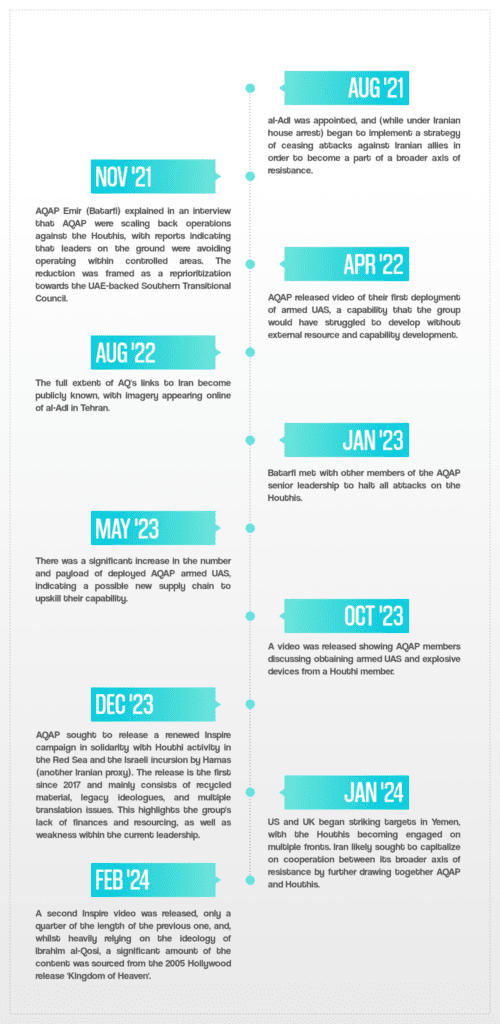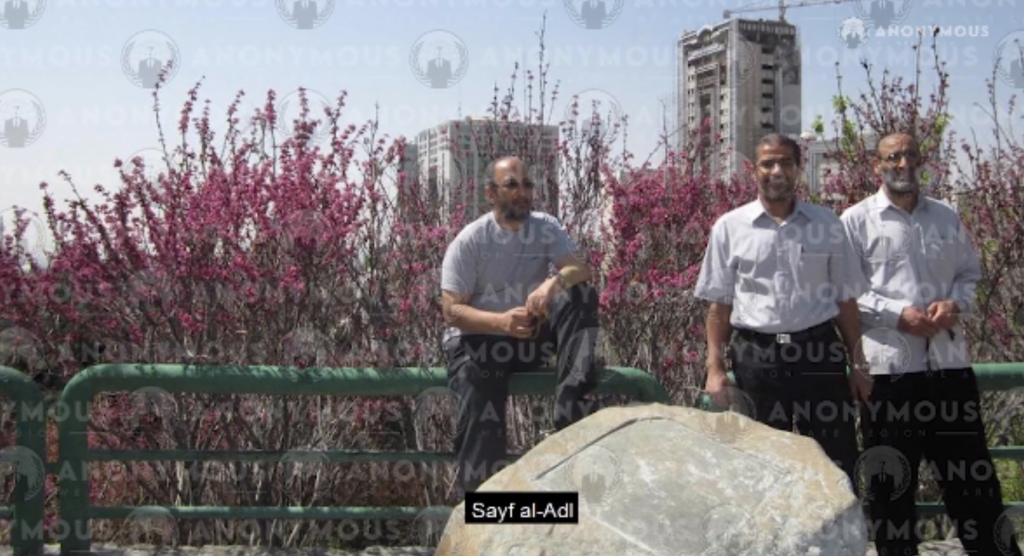Following on from our recent report ‘AQAP in Overdraft’, this month we discuss whether AQAP is undergoing an identity crisis as it suffers with not only a lack of funds, expertise, and leadership, but now also a wavering in the group’s fundamental ideology. Much like in IS, the strategic shock of the recent Israel/Gaza crisis has reshaped the group’s identity as it struggles to respond in a coherent way. Inconsistent attempts to make localized agreements with Iranian-backed Houthis amplifies this challenge, and will only degrade their long term support and relevance. This aligns with a series of growing links between the two groups, which have been accelerating since the death of Kabul based al-Zawahiri, and appointment of Iran based al-Adl to the AQ Global Emir:

Aug ’21: al-Adl was appointed, and (while under Iranian house arrest) began to implement a strategy of ceasing attacks against Iranian allies in order to become a part of a broader axis of resistance.
Nov ’21: AQAP Emir (Batarfi) explained in an interview that AQAP were scaling back operations against the Houthis, with reports indicating that leaders on the group were avoiding operating within controlled areas. This reduction was framed as a reprioritization towards the UAE-backed Southern Transitional Council.
Apr ’22: AQAP released video of their first deployment of armed drones, a capability that the group would have struggled to develop without external resource or capability development.
Aug ’22: The full extent of AQ’s links to Iran become public knowledge, with imagery appearing online of al-Adl in Tehran.
Jan ’23: Batarfi met with other members of the AQAP senior leadership to halt all attacks on the Houthis.
May ’23: There was a significant increase in the number and payload of deployed AQAP armed drones, indicating a possible new supply chain to upskill their capability.
Oct ’23: A video was released showing AQAP members discussing armed drones and explosive devices from a Houthi member.
Dec ’23: AQAP sought to release a renewed Inspire campaign, in solidarity with Houthi activity in the Red Sea and Hamas’s (itself another Iranian proxy) incursion into Israel. The edition is the first to be released since 2017 and mainly consists of recycled material, legacy ideologues and multiple translation issues. This further highlights the group’s lack of finances, resourcing, and absence of a strong leadership figure.
Jan ’24 onwards: US and UK begin striking targets in Yemen, with the Houthis becoming engaged on multiple fronts. Iran likely sought to capitalize on cooperation between its broader axis of resistance by further drawing together AQAP and Houthis.
Feb ’24: A second Inspire video was released, this was far shorter than the previous video. The new release relies heavily on the ideology of Ibrahim al-Qosi, and a significant amount of the content was sourced from the 2005 Hollywood movie, ‘Kingdom of Heaven’.
All of this forms clear evidence of how Iran is steadily increasing its influence over AQAP, both through its relationship with al-Adl and AQAP’s developing association with the Houthis. Whilst both groups appear to form a tool in Iran’s geostrategic proxy toolset, this is inconsistent within the context of their diverging religious views. The actions and direction of AQAP have become muddled and confused, an outcome of internal rifts and a lack of an overall strong leadership chain.

